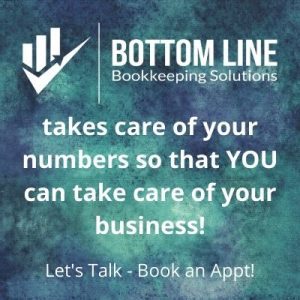 Your company’s financial statements can provide you with a wealth, pun intended, of information. Don’t let them collect virtual dust on your computer. Use them to grow and strengthen your business. The first step, of course, it to learn about reading financial statements. So, let’s focus on the five most important things.
Your company’s financial statements can provide you with a wealth, pun intended, of information. Don’t let them collect virtual dust on your computer. Use them to grow and strengthen your business. The first step, of course, it to learn about reading financial statements. So, let’s focus on the five most important things.
- There are four basic statements. As a business owner, you’ll be reading and focusing on three of the four financial statements. They include Income Statement, the Balance Sheet, and the Cash Flow Statement. The other statement that’s often included under the umbrella of financial statements is the Statement of Retained Earnings. However, you may not necessarily focus too much time on that one.
- Reading Financial Statements: Your Balance Sheet. The balance sheet provides a snapshot in time of what is owned (assets), what is owed (liabilities), and what is leftover (aka your net worth). When reading your balance sheet, you can learn how quickly customers are paying their bills, whether the products are being returned at higher-than-average rates, and how many days it takes, on average, to sell your on-hand inventory.
- Reading Financial Statements: Your Income Statement. The income statement is a record of your company's profitability. It tells you how much money you made or lost. When reading financial statements, it’s tempting to start with this one. That’s fine. It is a valuable document for reviewing your expenses, profit history, and net income. You can use it to help improve your company’s budget and bottom line.
- This brings us to your cash flow statement. This is one financial statement that many business owners often overlook and yet cash flow is one of the most common reasons that businesses fail. You have to have money on hand to cover your expenses, and if your cash flow is off, then you can go into debt. Your cash flow statement shows you where, and when, cash came in and how it was disbursed.
- Go over your statements with an expert. If you have an accountant or financial advisor you trust, wonderful. Sit down with them and go over the data. Bring a notebook with you so you can take notes on what the data means for your business. (It helps you plan.) Reading financial statements can feel overwhelming and it helps to have an expert at your side, and on your side.
Finally, be sure to set time aside to read your financial statements. Schedule it. Make sure you prioritize knowledge to grow and strengthen your business.
Did you know I have a degree in Accounting? If you want to have a conversation about your financial statements find a time on my calendar => https://DecisiveMinds.com/connect.





